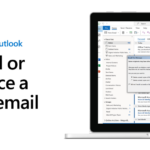Every car-buying journey is unique and can combine excitement, anxiety, and confusion. It is important to approach this process with the right mindset, informed decisions, and a strategic plan. This guide explores methods to ensure your car buying experience is a rewarding and successful one.
Conduct Thorough Research
The first step in the car buying process is conducting comprehensive research. Be it a new or used car, understanding its specifications, features, price range, and reviews is paramount. Always ensure your research extends to different makes, models, and dealerships to get the best deal. To have the ultimate automotive ownership experience, you can visit Emirates Moto centre.
Define Your Budget
Setting a clear budget is an essential step in the car-buying process. Be aware of what you can afford to pay monthly, considering other expenses and future financial obligations. Remember, the total cost of the car is more than the sticker price; it includes insurance, maintenance, fuel, and more.
Calculate Auto Loan Costs
Using an auto loan calculator can be extremely beneficial if you plan to finance your car. It helps you understand how much you can afford to borrow, the interest you will pay, and your monthly installments. This tool can prevent future financial surprises and help you plan your budget efficiently.
Check Vehicle History
If you opt for a used car, checking its history is crucial. The report should give you an insight into previous accidents, ownership transfers, mileage, service history, and any potential liens. This step can save you from future surprises and unwanted repair costs.
Test Drive Before Buying
A test drive is a non-negotiable step in the car-buying process. It helps you understand how the car feels on the road, its comfort level, and how well it suits your driving style. Always test drive the car in different conditions – city roads, highways, nighttime, etc., to make a well-rounded decision.
Negotiate Your Deal
Negotiating can seem daunting but can save you significant money. Remember, sticker prices at dealerships are often inflated, and there is room for negotiation. Always be prepared to walk away if the deal doesn’t feel right, and don’t be afraid to negotiate for better terms.
Understand Financing Options
There are multiple financing options available, from bank loans to dealership financing. Understand the pros and cons of each option and which suits your financial situation best. A good credit score can significantly influence your loan’s interest rates and terms.
Get Pre-Approved
Getting pre-approved for a car loan puts you in a stronger negotiating position. It shows the dealer you’re a serious buyer and provides a clear picture of what you can afford. Pre-approval also speeds up the purchasing process, reducing time spent at the dealership.
Consider Insurance Costs
Auto insurance is an essential aspect of owning a car. The model and make of the car, your driving record, and the insurance coverage can significantly impact the insurance cost. Shop for quotes from different insurance companies to get the best deal.
Inspect the Car
Whether you’re buying a new or used car, inspection is vital. For used cars, consider getting an independent mechanic to inspect the car. For new cars, ensure everything is in order and no cosmetic damages.
Understand the Warranty
Understanding the warranty on your potential car is important. It covers certain repairs and maintenance for a specific period or mileage. Ensure you’re clear on what is and isn’t covered to avoid unexpected expenses in the future.
Beware of Additional Costs
The sticker price is only part of the total cost of owning a car. There are additional costs, such as sales tax, registration fees, and dealership fees. Always factor these costs into your budget to avoid unpleasant surprises.
Consider the Resale Value
Resale value is often overlooked, but it’s important when buying a car. Some models depreciate faster than others, impacting your financials if you plan to sell your car. Research and choose a car with a decent resale value.
Buying a car can seem overwhelming, with numerous decisions to make. Still, you can ensure a successful and satisfying purchase with a systematic and informed approach.








